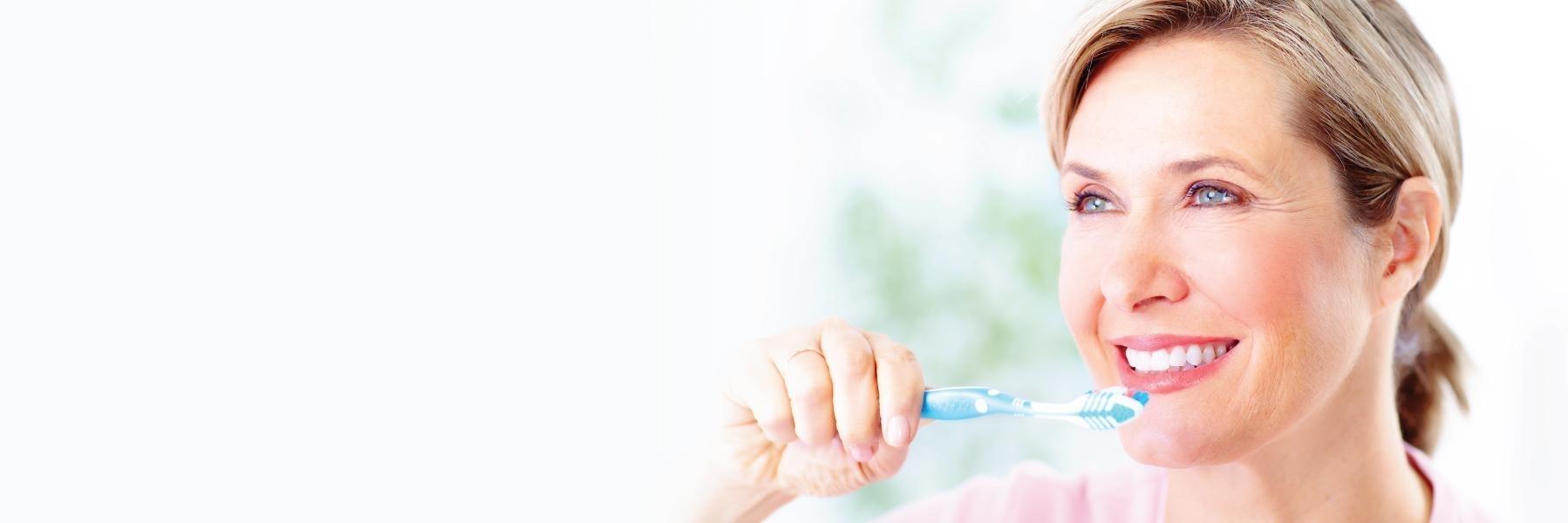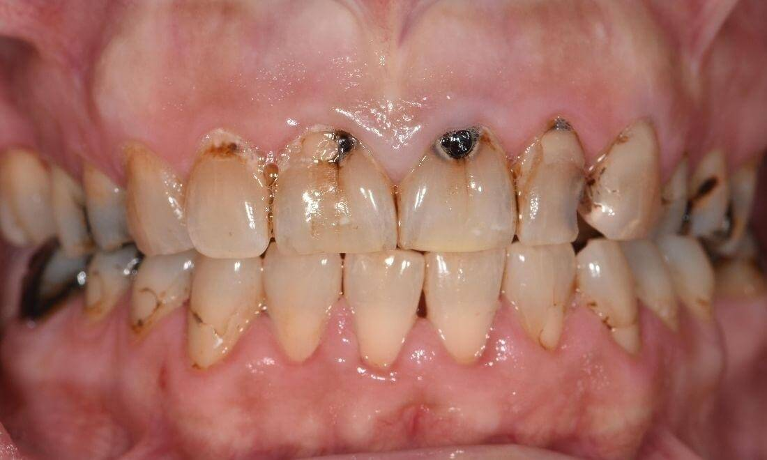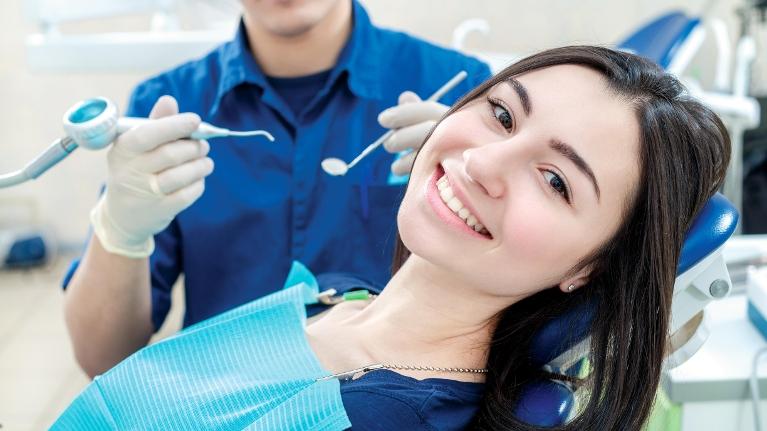One of your best defences against tooth decay, cavities, and gum disease is your daily home care routine. Brushing your teeth at least twice per day and flossing once is recommended so you can successfully remove the daily plaque buildup that causes these concerns.
If you're not able to effectively eliminate plaque on a daily basis, it builds up on your teeth and can begin to irritate your gums. Plaque buildup contributes to tooth decay and cavities, and if it irritates your gums, it can cause an infection known as gum disease. Gum disease is the leading cause of tooth loss in adults, and it's been linked with other health concerns like heart disease, so a consistent home care routine is essential to protect your health.
 How to Properly Brush and Floss Your Teeth
How to Properly Brush and Floss Your Teeth
Using the proper tools and techniques for brushing and flossing will ensure that you're doing the best job possible removing plaque and bacteria from your teeth.
Proper Flossing Technique
When flossing, use about 18 inches off floss so you can have a clean piece for each tooth. Wind the floss around your fingers and move it up and down gently between each tooth, wrapping around the tooth in a c-shape.
How to Brush Your Teeth
For brushing, gently move your toothbrush in circles around the front and back of your teeth, carefully massaging the gumline. Gum tissue is delicate and can be damaged with vigorous brushing. For the best results, spend at least two minutes brushing your teeth, or 30 seconds per quadrant.
Toothbrush Recommendations
You might also consider using an electric toothbrush to do the work of brushing for you. There are many electric brushes on the market; however, Dr. Joo typically recommends the Philips Sonicare.
Most electric toothbrushes are rechargeable and rotate their bristles gently, so all you have to do is move the brush carefully over your teeth and along your gumline. Many of these brushes have sensors that alert you if you are pressing too hard, protecting your gums and soft tissues. Your brush may also have a timer to ensure you're spending the correct amount of time brushing each quadrant of your mouth.
Your Barrie dentist doesn't have any specific recommendations on toothpaste, so go with your favourite flavour and consider using a fluoride paste to help protect against cavities.
Using Mouthwash at Home
You might also discuss adding an antibacterial mouth rinse to your home care routine to help protect against tooth decay. Your dentist in Barrie can help determine which mouth rinse is right for your needs, and as an extra benefit, you'll also get great breath after using a mouthwash. If you frequently use mouthwash, you should use an alcohol-free version of mouthwash, as excessive exposure to alcohol has been linked to oral cancer.
Contact Our Barrie Dental Clinic
Do you have questions about your oral health or the products that are best for your smile? We invite you to contact Park Place Dental today at (705) 728-9922 for more information or to schedule an appointment.

 First Dental Visit at Park Place Dental
First Dental Visit at Park Place Dental Importance of Regular Dental Cleanings
Importance of Regular Dental Cleanings Oral Health and Your Overall Health
Oral Health and Your Overall Health How to Properly Brush and Floss Your Teeth
How to Properly Brush and Floss Your Teeth







